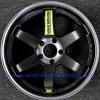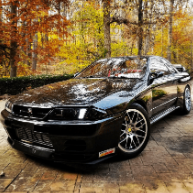Brembo Brakes Squealing....again...
Announcements
-
Similar Content
-
Latest Posts
-
Here is the mess that I made. That filler there was successful in filling dents in that area. But in the middle area. I can feel dents. And I've gone ocer it multiple times with filler. And the filler is no longer there because i accidently sanded it away. I've chased my tail on this job but this is something else lol. So I'm gonna attempt filler one more time and if it doesn't work I'll just high fill primer the door and see where the issues are because guidecoat is of no use atm.
-
Ok, so I think I sort of figured out where I went wrong. So I definitely overthinked it, and I over sanded, which is probably a large part of the problem. to fix it, I ended up tapping some spots that were likely to be high, made them low, filled them in, and I tackled small sections at a time, and it feels a lot better. I think what confused me as well is you have the bare metal, and some spots darker and some are lighter, and when I run my finger across it, it' would feel like it's a low spot, but I think it's just a transition in different texture from metal to body filler. When your finger's sliding on the body filler, and crosses over to the bare metal, going back and forth, it feels like it's a low spot. So I kept putting filler there and sanding, but I think it was just a transition in texture, nothing to do with the low or high spot. But the panel's feels a lot better, and I'm just going to end up priming it, and then I'll block it after with guide coat. Ended up wasting just about all of my filler on this damn door lol
-
-10 is plenty for running to an oil cooler. When you look at oil feeds, like power steering feeds, they're much smaller, and then just a larger hose size to move volume in less pressure. No need for -12. Even on the race cars, like Duncans, and endurance cars, most of them are all running -10 and everything works perfectly fine, temps are under control, and there's no restrictions.
-
By nouveau_poor · Posted
Update: O2 sensor in my downpipe turned out to be faulty when I plugged in to the Haltech software. Was getting a "open circuit" warning. Tons of carbon buildup on it, probably from when I was running rich for a while before getting it corrected. Replaced with new unit and test drove again. The shuffle still happens, albeit far less now. I am not able to replicate it as reliably and it no longer happens at the same RPM levels as before. The only time I was able to hear it was in 5th going uphill and another time in 5th where there was no noticeable incline but applying more throttle first sped it up and then cleared it. Then once in 4th when I slightly lifted the throttle going over a bump but cleared right after. My understanding is that with the O2 sensor out, the ECU relies entirely on the MAP tune and isn't able to make its small adjustments based on the sensors reading. All in all, a big improvement, though not the silver bullet. Will try validating the actuators are set up correctly, and potentially setting up shop time to tune the boost controller on closed loop rather than the open loop it is set to now. Think if it's set up on closed loop to take the O2 reading, that should deal with these last bits. Will try to update again as I go. -
By Dose Pipe Sutututu · Posted
More so GReddy oil relocation kits, sandwich plates, etc. all use 10AN fittings. And same, I've only used 10AN and my car sees track work (circuit, doing laps, not 10 sec squirt business).
-










Recommended Posts
Create an account or sign in to comment
You need to be a member in order to leave a comment
Create an account
Sign up for a new account in our community. It's easy!
Register a new accountSign in
Already have an account? Sign in here.
Sign In Now